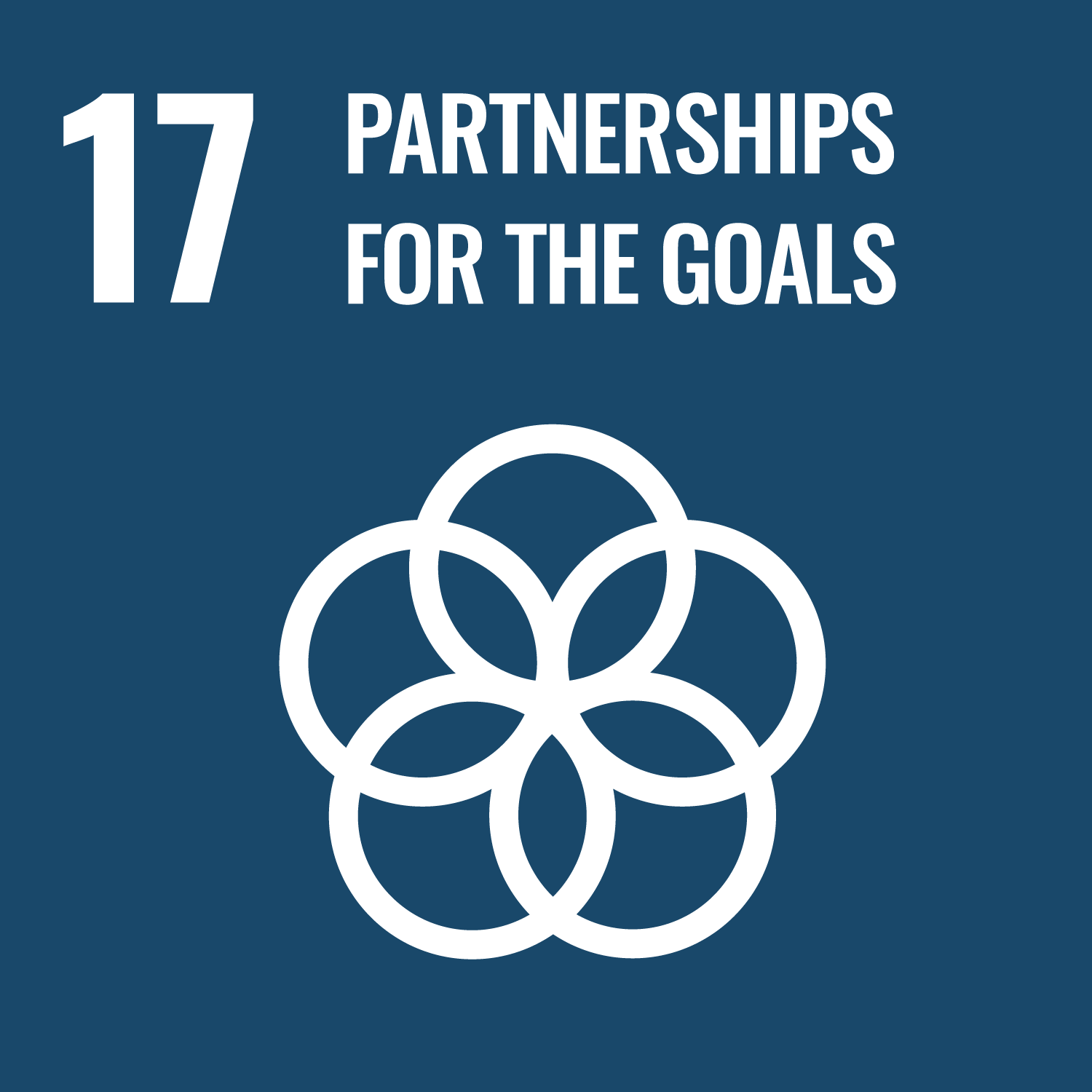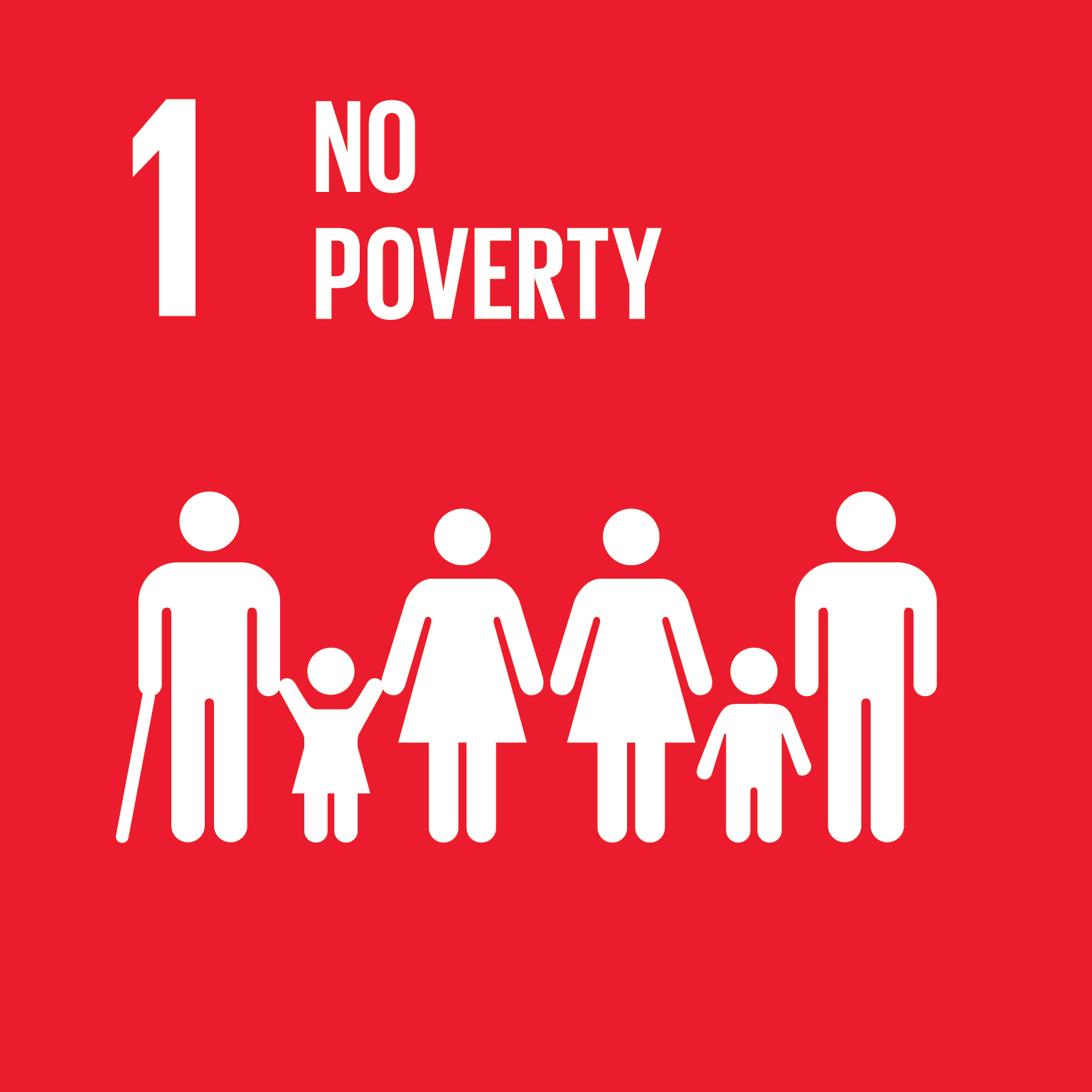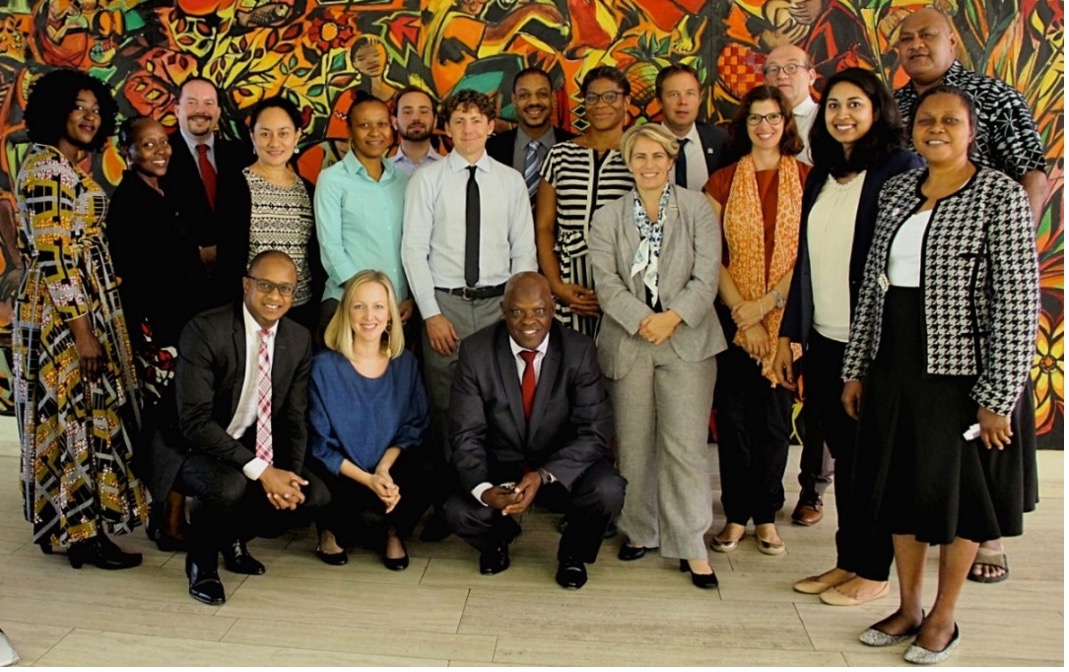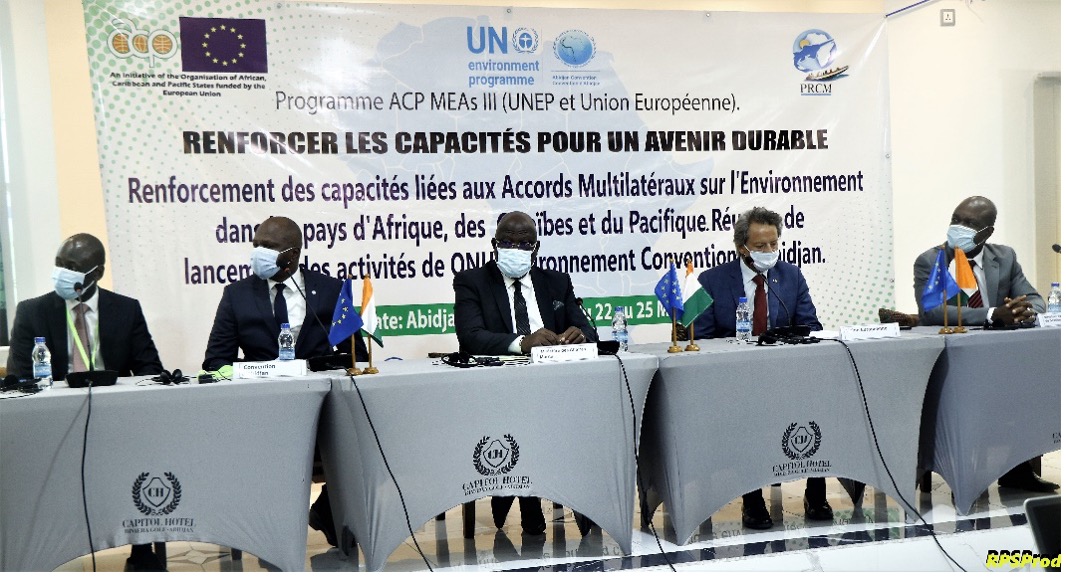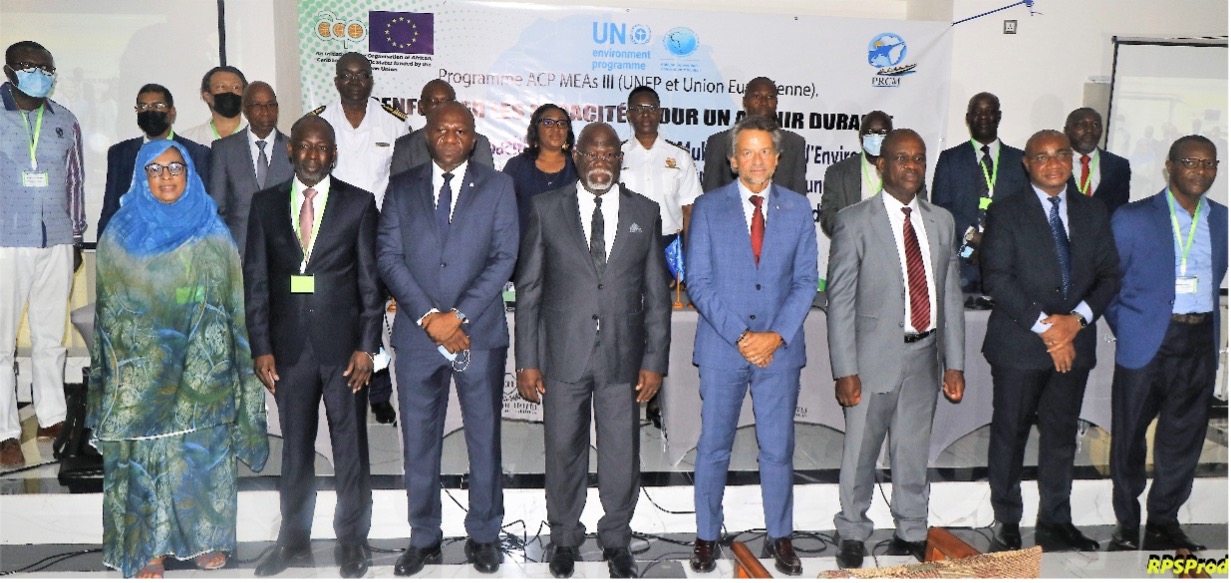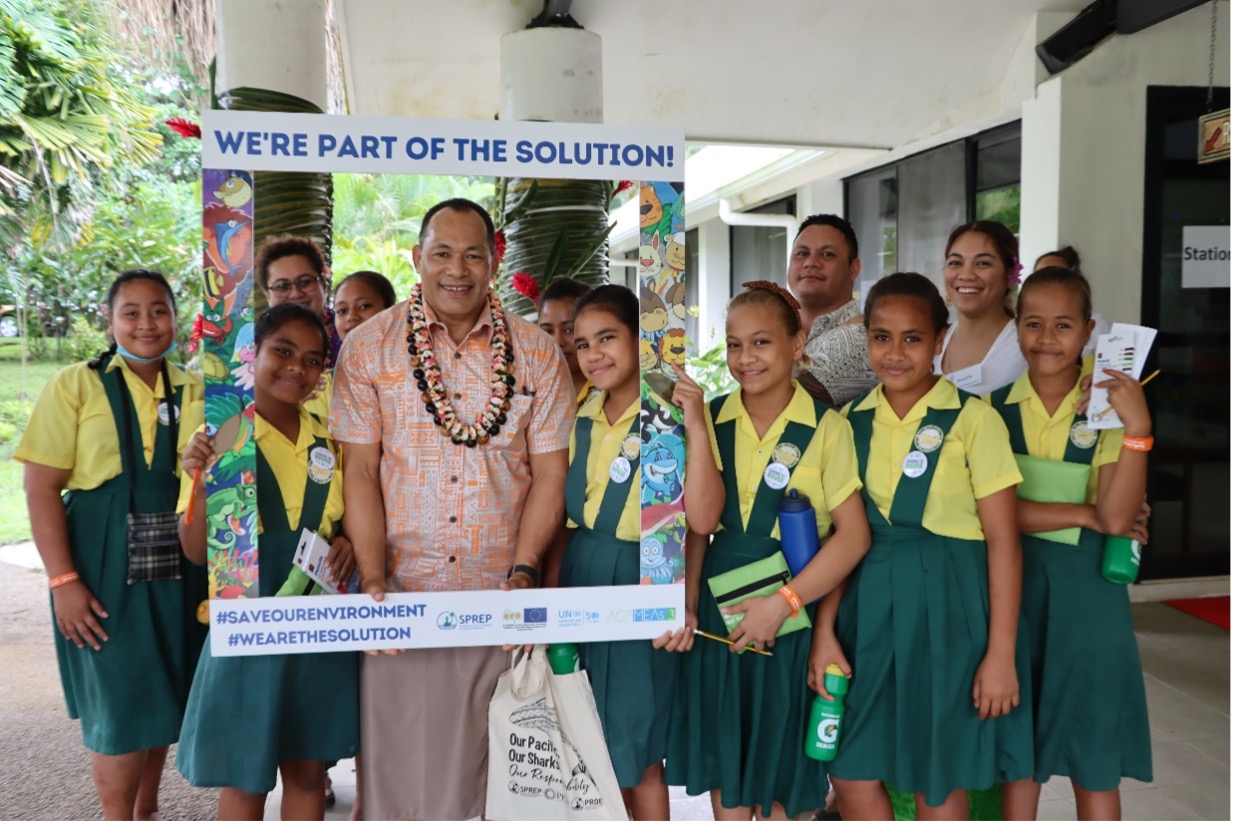Supporting the Implementation of Multilateral Environmental Agreements through Strengthening Environmental Governance
Supporting the implementation of multilateral environmental agreements through South-South cooperation
Challenges
Biodiversity loss – which is driven primarily by climate change and unsustainable resource use – has a direct and harmful impact on human health and livelihoods. The management of society’s hundreds of highly useful but also potentially noxious chemicals presents another important challenge. To address these and other challenges, countries have forged a host of multilateral environmental agreements, which include global commitments such as the Convention on Biological Diversity; the Basel Rotterdam and Stockholm Conventions; and, more recently, universal goals and targets for the Sustainable Development Goals (SDGs). However, transforming these agreements into tangible change remains a challenge, as many developing countries face obstacles to their implementation, including constraints in human, financial, and technical resources.
Towards a Solution
Through the African, Caribbean and Pacific (ACP) programme, which works with countries in Africa, the Caribbean, and the Pacific regions, UNEP supports two key areas of environmental governance: preventing biodiversity loss and enabling the sound management of chemicals and waste. In the past decade, the ACP programme has supported the institutionalisation of Multilateral Environmental Agreements (MEAs) by enhancing the capacities of regional institutions, and national bodies, and most importantly, by empowering change makers. The programme acts at different levels: global, regional and national, with the main objective of supporting partner countries in the specific areas required and to drive change within each one’s national context.
The programme introduced regional ‘hubs’ within the following regional inter-governmental organizations: the African Union Commission (AUC); the Caribbean Community Secretariat (CARICOM); and the Secretariat for the Pacific Regional Environment Programme (SPREP). These hubs have provided MEA support to their member states by enhancing officials’ negotiating skills and developing institutional and policy frameworks for the implementation of MEAs.
While this project is made possible by cooperation between the European Commission and the secretariat of the African, Caribbean and Pacific Group of States, South-South cooperation is an important tool to promote and support the project.
Cooperation across regions
The project allows knowledge to be shared across regions of the Global South. UNEP regional coordinators travel to each other’s regions to participate in activities. At a workshop held in March 2016, representatives from 17 developing countries from three regions shared their experiences of revising their National Biodiversity Strategies and Action Plans (NBSAPs).
Two of the three regions (the Caribbean and the Pacific) consist primarily of Small Island Developing States (SIDS). Sharing of knowledge and experiences among countries in these two regions has proved to be a successful model for facilitating South-South cooperation.
Cooperation within regions
Africa
In December 2018, a workshop was held to promote the harmonisation of Prior Informed Consent (PIC) on international trade in hazardous chemicals and Persistent Organic Pollutant (POP) pesticides. The meeting was attended by eight participants who work in the field of POPs and pesticides regulation and management representing seven Member States of the Intergovernmental Authority on Development (Ethiopia, Djibouti, Kenya, Somalia, South Sudan, Sudan, and Uganda). The workshop sensitised participants on the need to harmonise PIC and POPs chemicals as well as the need to develop a road map towards achieving coordinated use of the Global Harmonised System (GHS) codes on trade in hazardous waste chemicals. It also recommended that a concrete and adequate labelling system for the PIC and POP pesticides be defined through a regional approach that integrates transboundary movement, storage and use of notification procedures for traders across the IGAD Member States.
Caribbean
The ACP MEA Programme’s Caribbean Hub has been leading the efforts in developing the first-ever regional Biodiversity Strategy for the Caribbean, a global biodiversity hotspot. Through a wide consultative process spanning over two years, which included member states, civil society stakeholders, and others, the intra-regional effort established a biodiversity strategy that is customised to the region and that is considered a significant milestone.
Pacific
In 2017, SPREP established a partnership and collaboration with the Commonwealth of Northern Mariana Islands (CNMI) Bureau of Environment and Coastal Quality in delivering capacity-building training on Environmental Impact Assessment (EIA) compliance and permitting in Pohnpei and Kosrae States of the Federated States of Micronesia (FSM). The training targeted government sectors, business communities, Environmental Protection Agency board members, environment officers, and municipal council members. The training was in response to a request by the Office of Environment and Emergency Management (OEEM) of FSM. A review of the existing EIA guidelines for FSM was initiated as a direct result of the training. In 2018, the Pacific Hub organised a regional review meeting of the ACP MEA 2 Project Pacific component. The event brought together representatives from Pacific ACP countries to share their experiences, ideas, best practices and lessons learned on environmental impact assessments, State of Environment (SOE) reporting, NEMS, MEA implementation, as well as on engagement at MEA Conference of the Parties (COP) meetings.
South-South cooperation plays a clear role in achieving the project’s objectives. For example, inter-regional South-South cooperation between the Pacific and the Caribbean Hubs, particularly during phase 1 of the ACP MEA Project, helped to foster a good working relationship between the two hubs; it was also instrumental in building a good understanding of issues that are common between the two regions. Bringing country representatives together in a regional forum creates an excellent platform for learning, sharing and networking. According to the Pacific Hub, for South-South cooperation to be effective and meaningful, all parties need to be engaged right at the outset and take an active role in designing and delivering South-South interventions. This approach helps to build ownership of the process as well as the outcomes that are achieved. Such ownership is key to ensuring that the mechanisms established are sustained beyond the life of the project. SPREP recommends that going forward, South-South cooperation should aim to facilitate exchanges among key decision-makers, including parliamentarians and other actors.
One of the key lessons learned is that there should be a steady flow of information and knowledge to catalyse environmental change through South-South cooperation. Ad hoc implementation of South-South knowledge sharing is not sufficient to create a culture of knowledge and experience sharing. Dedicated and sustained mechanisms must be established to facilitate such exchanges across the three regional hubs.
Contact Information
Dr. Balakrishna Pisupati, Programme Manager, UNEP
Countries involved
Global
Supported By
United Nations Environment Programme (UNEP)
Implementing Entities
United Nations Environment Programme (UNEP)
Project Status
Ongoing
Project Period
1/2009
URL of the practice
https://www.unep.org/resources/newsletter/acp-meas-3-monthly-digests-and-quarterly-newslettersPrimary SDG
13 - Climate Action
Secondary SDGs
02 - Zero Hunger, 03 - Good Health and Well-being, 06 - Clean Water and Sanitation, 12 - Responsible Consumption and Production, 13 - Climate Action, 14 - Life Below Water, 15 - Life on Land, 17 - Partnerships for the Goals
Primary SDG Targets
13.1 13.2Similar Solutions
